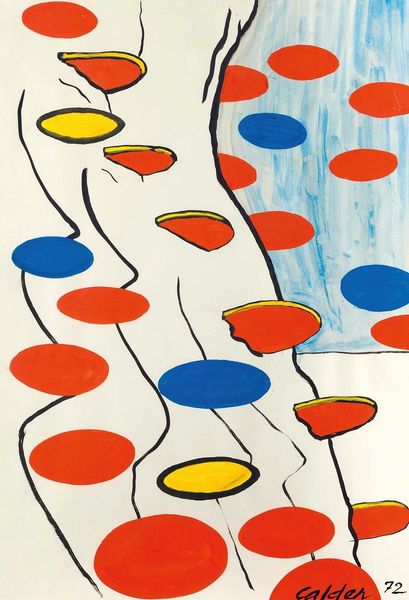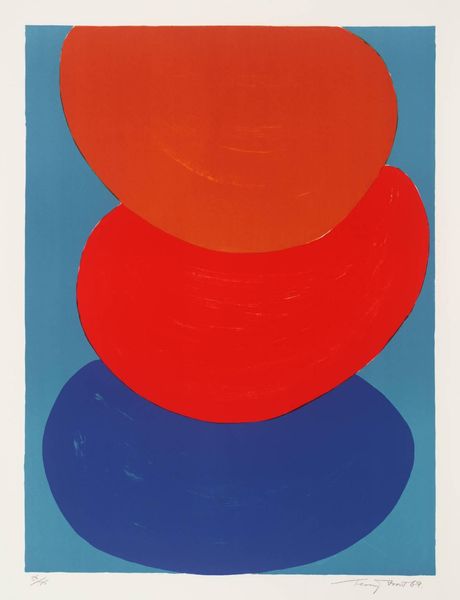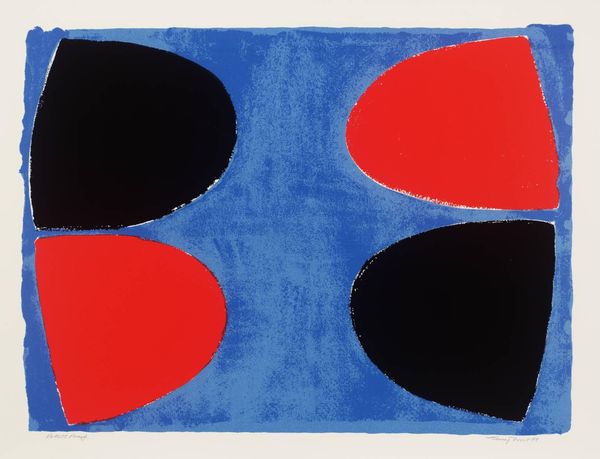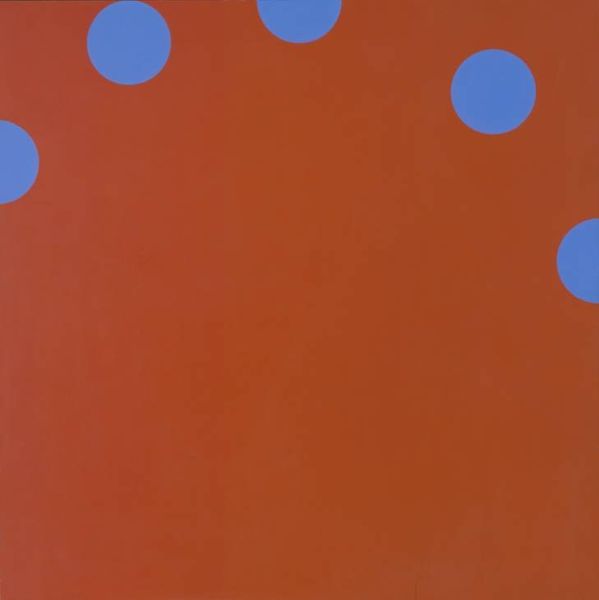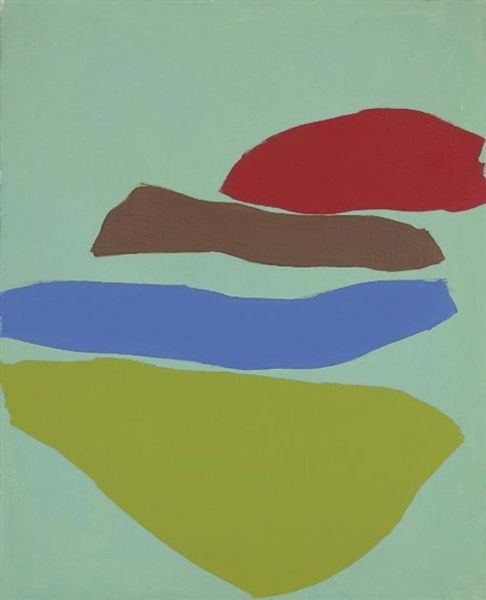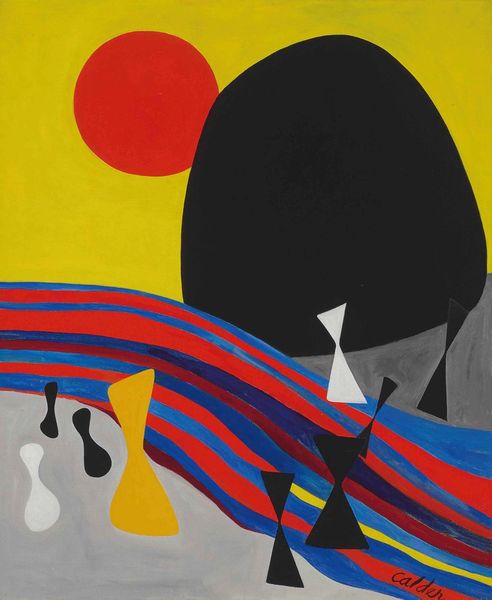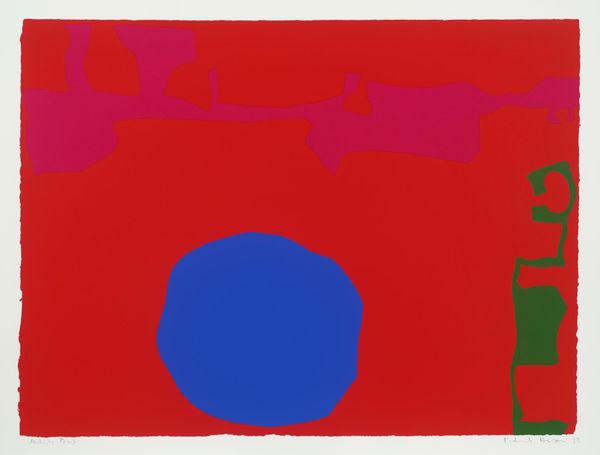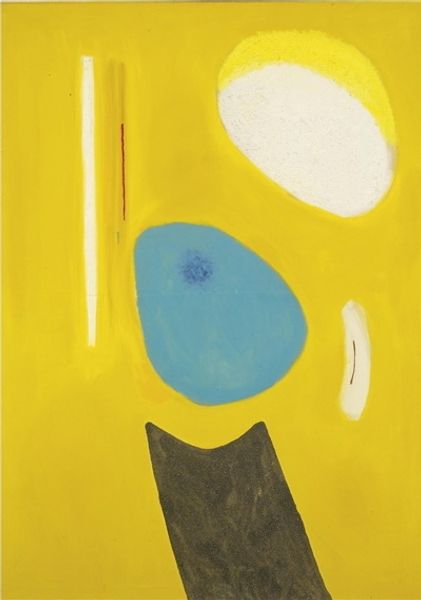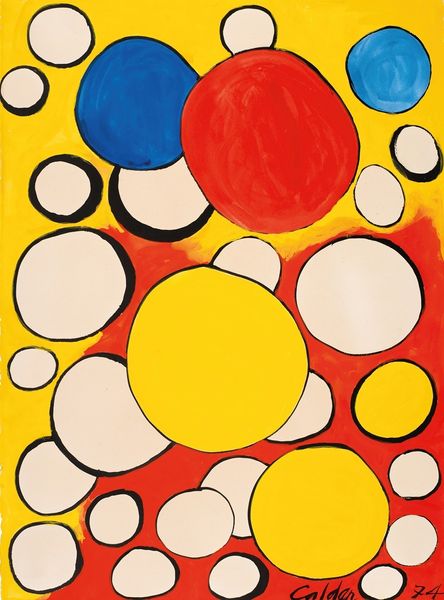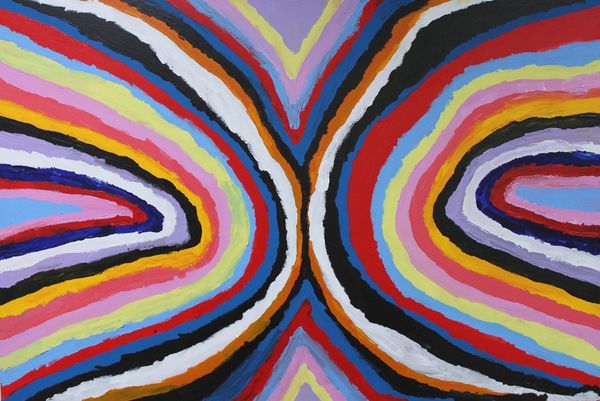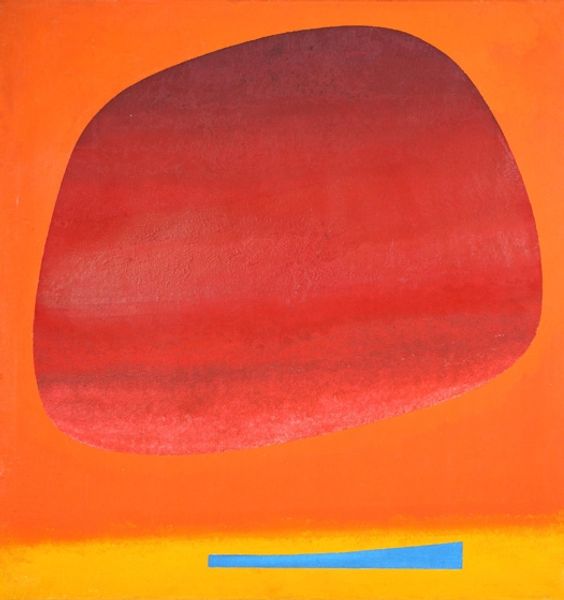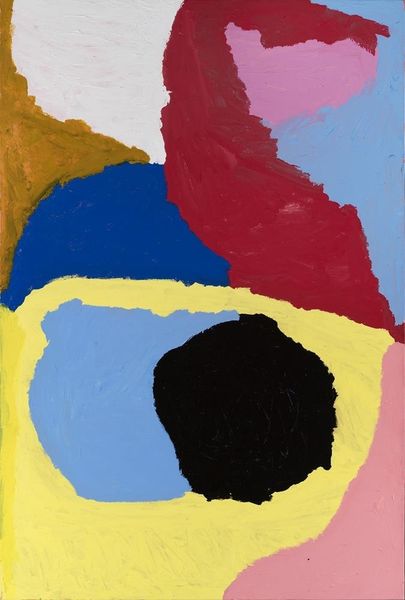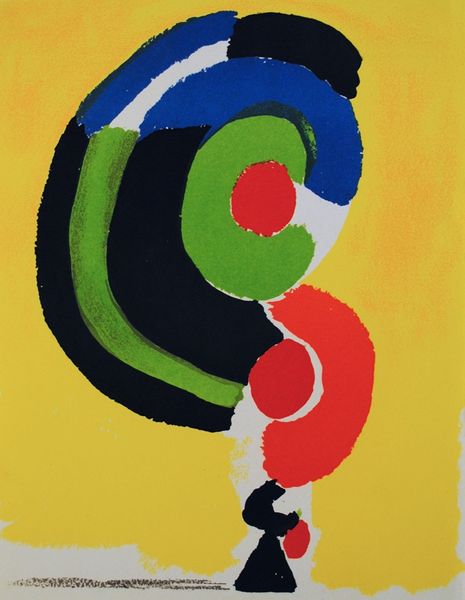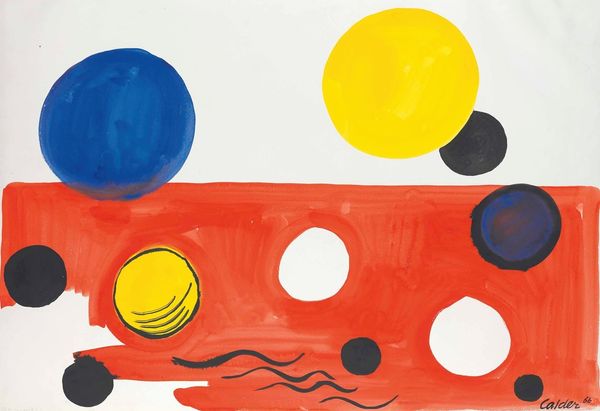
acrylic-paint
#
abstract expressionism
#
circle
#
pattern
#
op art
#
pop art
#
acrylic-paint
#
geometric pattern
#
geometric
#
pop-art
#
line
Copyright: Konrad Lueg,Fair Use
Curator: Konrad Lueg, also known as Lothar Fischer, created "Praying Hands" in 1963, rendered with acrylic paint. Editor: My initial feeling is, paradoxically, calm and agitated. The bright yellow and red should feel joyful, but the regimented repetition creates a subtle tension. Like an insistent prayer perhaps? Curator: Lueg’s piece here speaks to Pop Art’s appropriation of everyday imagery, but it also carries an almost meditative quality in its rhythm. What does it evoke for you regarding historical or cultural narratives? Editor: The title itself implicates religious narratives of subservience to a higher power and yet the colors and application reflect the banality of a pop-infused artistic moment. Who exactly is praying, and what sociopolitical demands might they be directing skyward? It definitely resonates within dialogues on performative piety and the intersection of religion and political authority in post-war societies. Curator: I agree! It's less reverent and more like a critical wink, right? Lueg captures the essence of this consumer culture, and its subtle absurdities become poignant and revealing. Like a cartoonish echo of something deeply held. Editor: Absolutely. Also, by rendering hands this way in 1963, when concepts surrounding hyperreality and simulation began infiltrating discussions on representation, the picture becomes embedded with larger semiotic questions. The representation supersedes the real so how can we decipher the intention behind this "prayer"? Curator: It's like looking at a sign for prayer rather than witnessing prayer itself. We find ourselves lost in these circular readings. Thinking of "Praying Hands" in light of the decade in which it was created makes me reflect on how visual rhetoric works to shape belief. Editor: I appreciate the open dialogue generated between form, theory, and potential narrative here; this artwork has such fascinating implications! Curator: Precisely. And revisiting it leaves me with that feeling that art does best - not providing answers, but endlessly re-framing our questions.
Comments
No comments
Be the first to comment and join the conversation on the ultimate creative platform.
